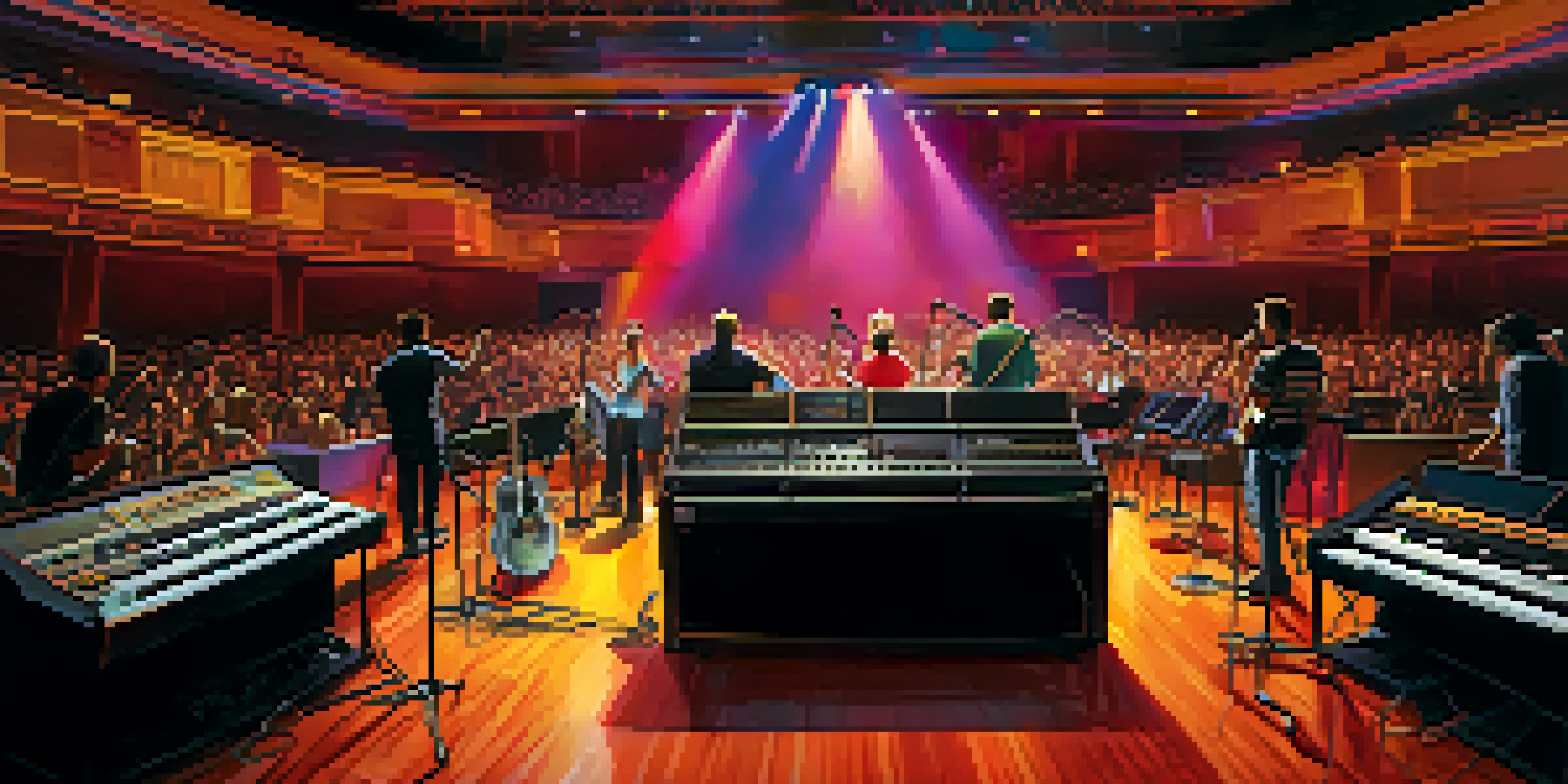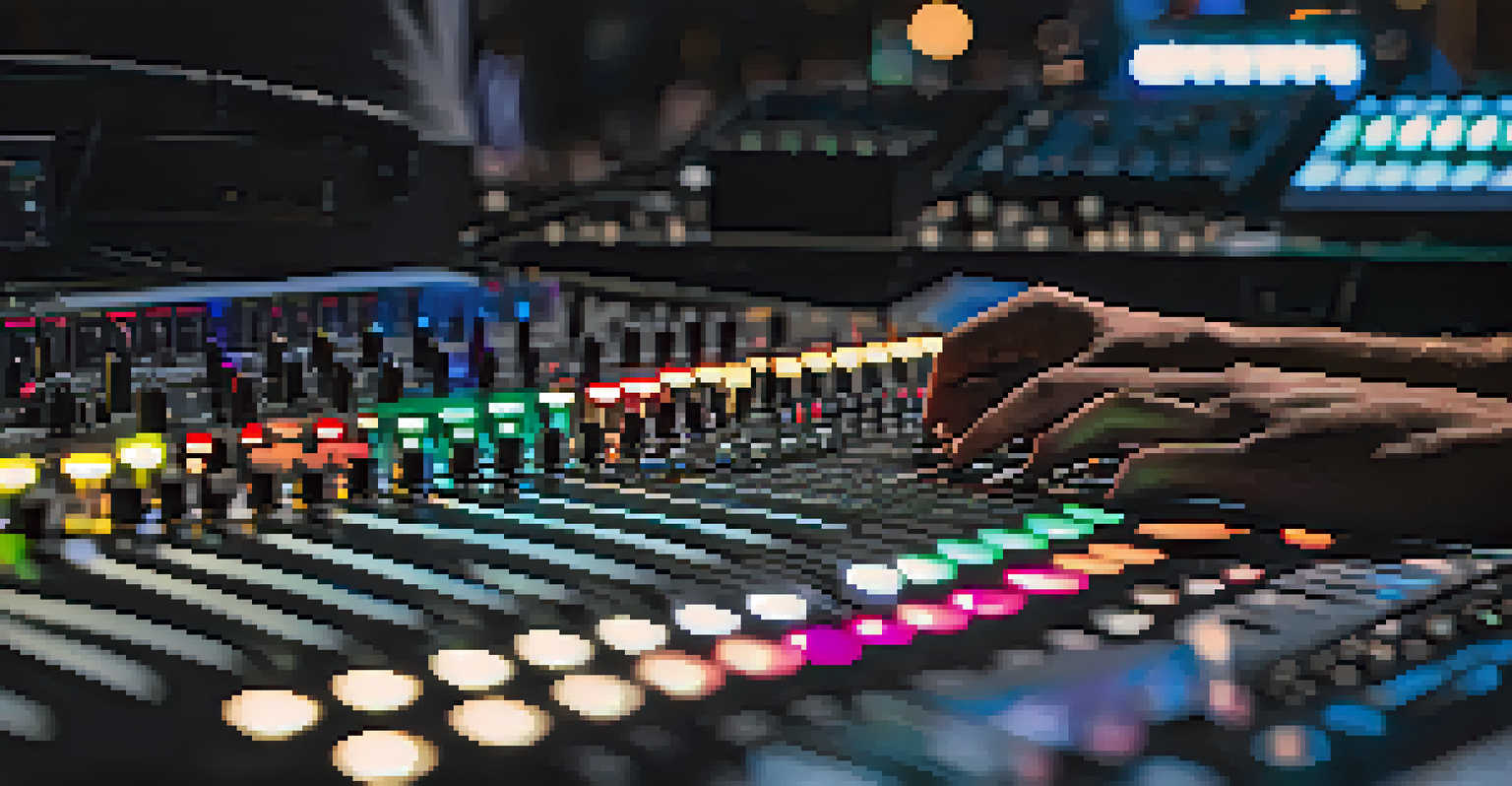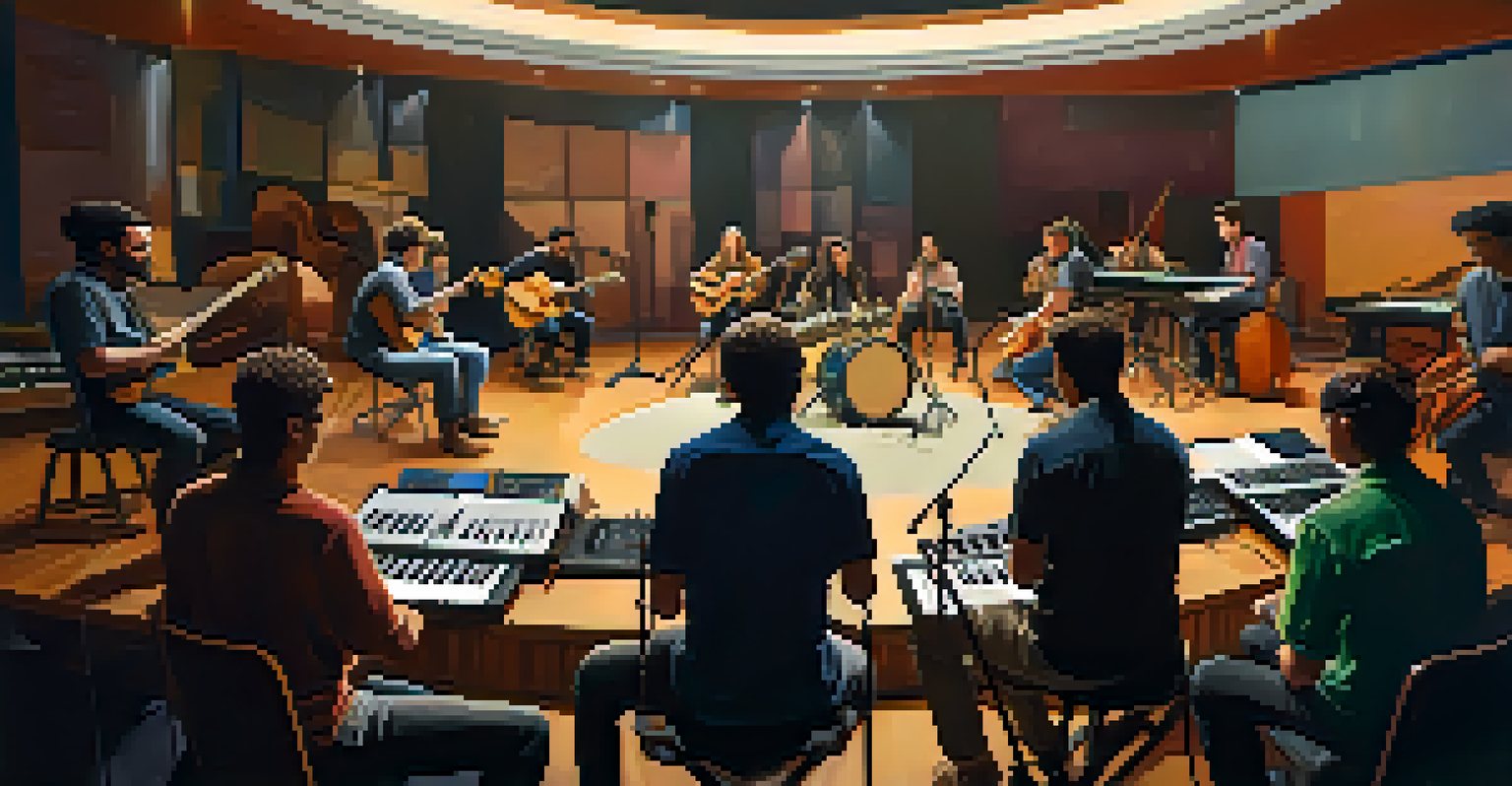The Importance of Soundcheck in Live Performance Settings

Understanding Soundcheck: What Is It Exactly?
A soundcheck is a vital part of any live performance, ensuring that all audio elements are in perfect harmony. Think of it as a rehearsal, but specifically focused on the sound quality and technical setup. Musicians and sound engineers come together to test microphones, instruments, and speakers, ensuring everything functions as intended before the audience arrives.
Sound is the vocabulary of nature.
Without a proper soundcheck, the audience might experience issues like feedback, imbalance, or even complete silence from certain instruments. This process is not just about volume; it's about creating an immersive experience where every note is heard clearly. It sets the stage for a memorable performance, allowing artists to connect with their audience fully.
For audiences, a well-executed soundcheck translates to a smoother, more enjoyable experience. When the sound is right, the performance comes to life, allowing fans to engage with the music on a deeper level. Ultimately, a soundcheck is the unsung hero of live performances.
The Technical Aspects of Soundcheck
During a soundcheck, various technical elements are assessed, including mic placements, audio levels, and instrument tuning. Sound engineers play a crucial role in this stage, adjusting settings on the mixing console to ensure everything is balanced. It's like fine-tuning a complex machine; each adjustment can significantly impact the overall sound.

Musicians often use this time to communicate their preferences, like the level of their instrument in relation to others. For instance, a guitarist might want their sound slightly louder during solos, while a vocalist may need to be more prominent in the mix. These small tweaks can make a big difference in how a performance feels.
Soundcheck Ensures Audio Quality
A soundcheck is essential for testing and adjusting audio elements, ensuring a seamless and enjoyable experience for both performers and the audience.
The importance of this technical phase can't be overstated. A thorough soundcheck can prevent potential disasters during the show, such as feedback loops or unexpected sound drops. By addressing these issues beforehand, performers can focus on delivering a stellar performance without technical distractions.
Building Confidence for Performers
Soundchecks are not just about sound; they also serve as a confidence booster for performers. Knowing that everything is set up correctly allows artists to focus on their performance rather than worrying about technical issues. This peace of mind can translate into a more engaging and energetic show for the audience.
Music brings people together, and the right sound can make a performance unforgettable.
For many musicians, the live stage can be intimidating, especially in front of large crowds. A successful soundcheck can alleviate some of that anxiety, allowing them to feel more prepared and in control. It’s like rehearsing before a big game; you want to ensure every player knows their role.
Moreover, the camaraderie built during soundchecks fosters a sense of teamwork. When everyone collaborates effectively — from the sound engineer to the performers — it strengthens the bond between them. This synergy often leads to a more dynamic and authentic performance on stage.
Audience Engagement: The Impact of Soundcheck
A well-executed soundcheck can significantly enhance audience engagement during a live show. When the sound is clear and balanced, attendees can immerse themselves fully in the music. This creates a shared experience that resonates with everyone in the venue, enhancing enjoyment and connection.
Imagine attending a concert where the sound is muddled or inconsistent; it can be frustrating and detracts from the overall experience. On the other hand, when the sound is spot on, it elevates the energy in the room and encourages audience participation, like singing along or dancing.
Boosts Performer Confidence
Soundchecks provide performers with the reassurance they need to focus on their performance, alleviating anxiety and fostering a dynamic show.
Ultimately, the quality of sound can make or break a performance. A soundcheck ensures that the audience can enjoy the music to its fullest, fostering a memorable atmosphere that they will cherish long after the concert ends.
Adjusting to Venue Acoustics: Why It Matters
Every venue has its own unique acoustics, which can drastically affect how sound is perceived. A soundcheck allows musicians and sound engineers to adapt to these specific conditions, ensuring the best possible audio experience. For example, a small club may have different reverberation characteristics than an outdoor festival stage.
Understanding venue acoustics is crucial for delivering a quality performance. By adjusting mic placements and speaker configurations accordingly, the team can minimize issues like echo or muffled sound. This attention to detail is what sets professional performances apart.
Moreover, soundchecks provide an opportunity to experiment with different setups. Artists can play around with their sound until they find the perfect balance, leading to a more polished and refined performance. It's all about embracing the unique challenges each venue presents.
The Role of Communication in Soundcheck
Effective communication is key during a soundcheck. Musicians need to convey their preferences clearly to sound engineers, while engineers must provide feedback on sound quality and adjustments. This back-and-forth dialogue ensures that everyone's needs are met, contributing to a smoother performance.
For instance, if a singer feels their vocals are getting lost in the mix, they should communicate that to the sound engineer. Similarly, the engineer might suggest a slight adjustment to the guitar levels based on what they hear. This collaborative approach fosters a sense of teamwork and shared responsibility.
Enhances Audience Engagement
When sound is clear and well-balanced, it enhances audience engagement, creating a memorable and immersive concert experience.
When communication flows seamlessly, it ultimately leads to a more successful soundcheck. Everyone feels involved in the process, creating an environment where creativity can thrive. This not only enhances the performance but also strengthens relationships among the team.
The Final Touch: Soundcheck's Lasting Benefits
The benefits of a soundcheck extend beyond just the immediate performance. A successful soundcheck can lead to a more cohesive and well-rehearsed show, resulting in positive reviews and audience satisfaction. When a performance goes smoothly, it reflects well on the entire team, enhancing their reputation.
Moreover, musicians often learn valuable lessons from each soundcheck experience. They can identify what works best for their sound, which can inform future performances. This knowledge helps them become more adaptable and better equipped to handle different venues and situations.

In the end, soundchecks are an essential part of the live performance process, laying the groundwork for success. They ensure that every element comes together harmoniously, allowing artists to shine on stage while delivering an unforgettable experience for the audience.